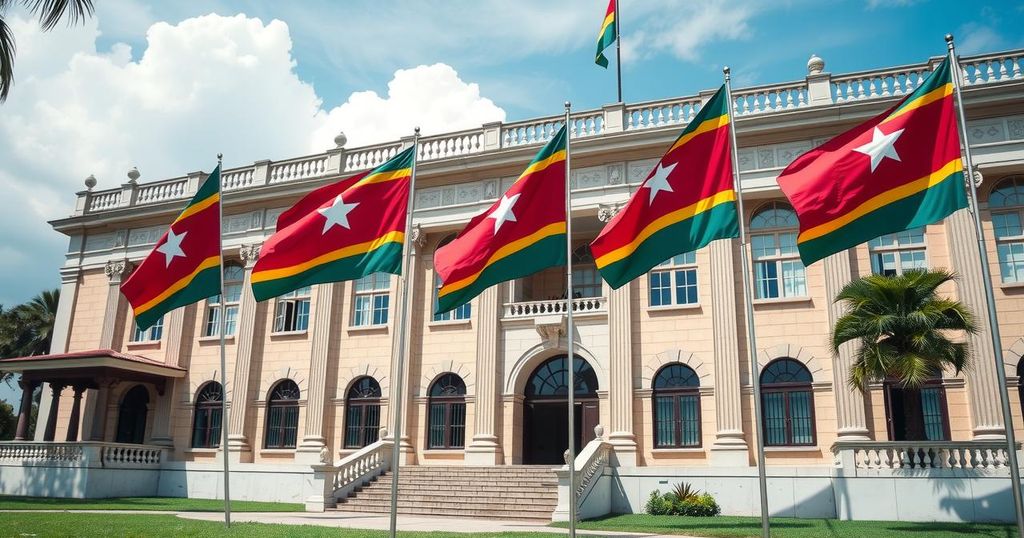Mozambique’s highest court upheld the ruling Frelimo Party’s electoral victory for Daniel Chapo, confirming 65.17% of the vote despite allegations of electoral fraud and violent protests resulting in over 130 deaths. Chapo promised electoral reforms, while opposition leader Mondlane’s supporters continued to protest, claiming vote rigging and calling for a national shutdown.
Mozambique’s Constitutional Council has officially affirmed the electoral victory of the ruling Frelimo Party and its candidate, Daniel Chapo, amidst widespread allegations of electoral fraud and subsequent violence. Despite acknowledging some irregularities in the electoral process, Chairperson Lucia Ribeiro stated that these issues did not significantly alter the election outcomes, confirming Chapo’s win with 65.17% against opposition candidate Venâncio Mondlane’s 24.29%. Frelimo also retained a majority in parliament and all provincial governance positions.
The electoral announcement made by the National Election Commission led to significant unrest, resulting in over 130 deaths during protests that extended for nearly two months following the elections conducted on October 9. In his acceptance remarks, Chapo expressed a commitment to reform the electoral system to better reflect the aspirations of the Mozambican population, emphasizing the need for reform beyond mere party interest.
Shortly after the ruling, protests reignited in Maputo, where Mondlane’s supporters expressed their discontent; they accused Frelimo of vote rigging and initiated calls for a national shutdown. Human rights activist Adriano Nuvunga criticized the decision of the Constitutional Council, stating it would exacerbate national tensions rather than address them. Many opposition figures and citizens remain dissatisfied with the election results, signaling ongoing unrest.
Mozambique’s political landscape has long been dominated by the Frelimo Party, in power for 49 years. The recent elections, held on October 9, 2024, were contentious, marred by allegations of widespread electoral fraud. The aftermath of the elections saw a significant reaction from the public, with protests erupting as the opposition parties rejected the election results, leading to violent clashes with the police. This unrest has highlighted grievances regarding the integrity of Mozambique’s electoral system and the government’s approach to dissent.
The affirmation of Frelimo Party’s victory has led to continued unrest in Mozambique, with opposition factions and citizens fiercely contesting the results. Daniel Chapo’s promises for reform have yet to quell public dissatisfaction, as protests persist with calls for a national shutdown. The situation underscores the fragility of Mozambique’s democracy and the critical need for systemic change to address the populace’s concerns for fair representation and governance.
Original Source: www.voanews.com






